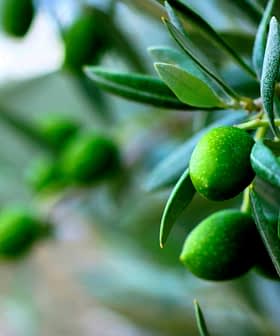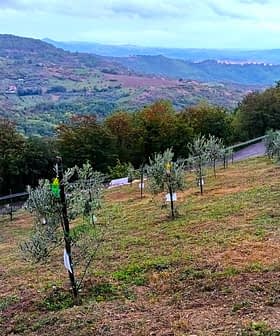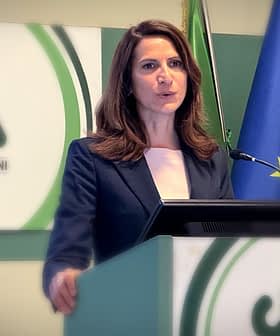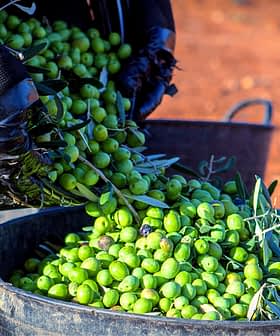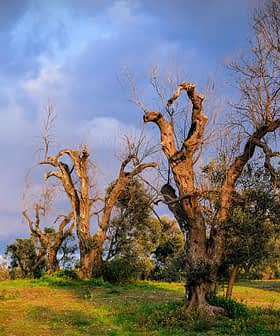Solar Ban in Italy Pushes Developers Into Olive Oil Production
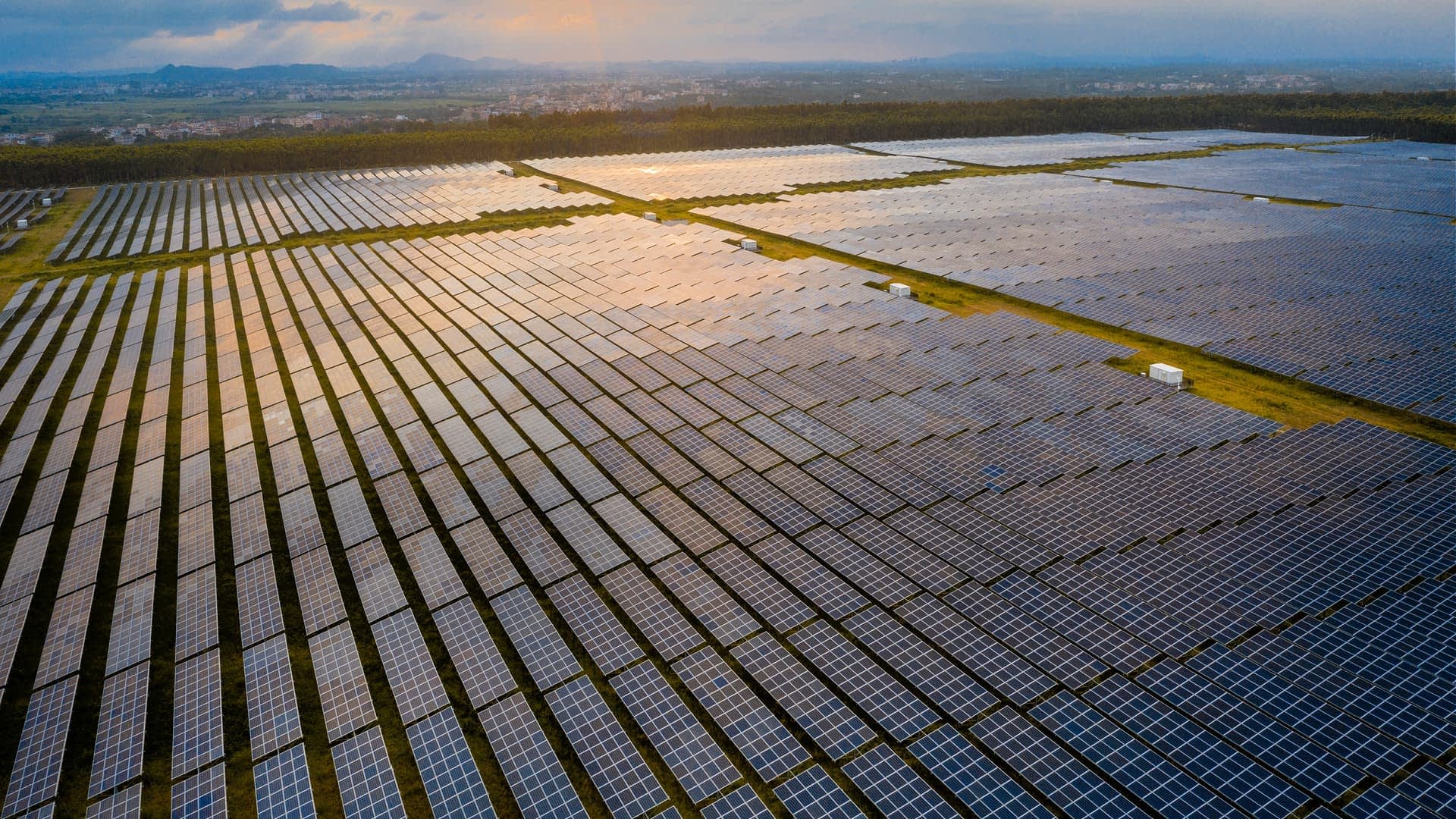
Despite a ban on utility-scale solar projects on agricultural land in Italy, some developers are turning to agri-photovoltaic projects, integrating solar panels with agricultural activities to continue installations. CCE Italia, for example, produced olive oil from one of its agri-PV projects, leveraging renewable energy resources to create a competitive advantage in the agriculture sector and reduce costs while decreasing the carbon footprint.
Despite a prohibition on utility-scale solar projects on agricultural land in Italy, the sector is on pace for record installations.
Rather than waiting for the outcome of a judicial review of the ban or abandoning projects altogether, some developers are turning to the exemption for so-called agri-photovoltaic (PV) projects, where solar panels raised at least 2.1 meters above the ground are integrated into ongoing agricultural activities.
Among the companies making the pivot is CCE Italia, which produced olive oil from one of its agri-PV projects in central Italy.
Companies like ours must evolve from solar PV to agri-solar PV projects.
”Companies like ours must evolve from solar PV to agri-solar PV projects,” Sandro Esposito, CCE Italia’s managing director, told Olive Oil Times. “ This is a new economic sector where we can combine perfectly the agronomic side with the company.”
Esposito discovered about 1,000 olive trees on a plot of land purchased by the company for solar panel installation in the Canino comune of the Lazio region.
With the passage of the Agricultural Law Decree in May 2024, he saw an opportunity to leverage the company’s renewable energy resources to create a competitive advantage in the agriculture sector.
See Also:In Andalusia, Activists Fight to Save Centuries-Old Olive Trees from Solar PlantsThe company invested €200,000 in relocating the Canino trees, which were aged between 50 and 70 years, to create space for a more compact photovoltaic layout and to install a solar-powered irrigation system.
At the end of 2024, CCE Italia harvested olives for the first time, producing 700 bottles of organic olive oil on the same estate as the 14-megawatt solar plant, which is expected to be connected to the grid this year.
Esposito said that using solar power has significantly reduced the company’s irrigation costs and decreased the carbon footprint of the olive oil.
“The energy needed for the production came only from renewables,” he said. “So the carbon footprint of this olive oil is negative,” citing additional technology to capture carbon at the solar plant.
Rather than sell the olive oil, Esposito said the company will give the bottles away, using them as a communication tool to promote synergy between olive oil production and other agricultural activities, as well as solar PV development.
“ In the evaluation of the old business model, at the end, you have an impact on the capital expenditure side for the buildup [of the agricultural side of the agri-PV project], but you will also have the income stream gained from selling [the wine or olive oil],” he said.
Indeed, Milan-based Elemens Energy Boutique Consulting estimated that 62 percent, or 94 gigawatts, of solar projects undergoing permitting in Italy would not be affected by the ban, as they would benefit from the carveout for agri-PV projects.
While Esposito plans to expand from olive oil production into cheese and winemaking with new agri-PV developments centered around vineyards and sheep pastures, he lamented the politics behind the ban.
“If we want to cover all our needs from renewables within 2050, we need only two percent of all the agricultural land in Italy,” he said. According to Italia Solare, only 0.13 percent, or 16,600 hectares of Italy’s available agricultural land, is covered by utility-scale solar.
Despite Esposito’s claim, there has been significant pushback from some portions of the country’s agricultural sector against utility-scale solar.
Coldiretti, Italy’s most powerful farmers’ union, welcomed the ban when it was announced, citing the need to prevent institutional investors from buying large swaths of farmland to develop solar projects or resell at higher prices to developers.
“We cannot accept the shortcut of photovoltaics,” said Luigi Pio Scordamaglia, Coldiretti’s director of international policies. “We don’t want to accept the inertia of an administration that decided not to invest and improve irrigation. We want to realize the full productive potential of that land again.”
Esposito, other developers and consultants in the sector have denied that any speculation is occurring. Indeed, other farmers have hailed the partnership between solar developers and farmers as a lifeline.
“Photovoltaics are a salvation for us, a gift from the heavens,” Emanuele Bocchicchio, a farmer in the southern region of Basilicata, told the Financial Times.
Bocchicchio earns €3,000 per hectare per annum from the 44 hectares he rents out to a local solar developer. The farmer said the land is fallow due to a lack of irrigation, combined with an increasingly hot and dry climate.
“No one is obliged to give their land for solar panels, it’s a free choice,” he said. “In marginal areas like this, it’s vital.”
An estimated four million hectares of designated farmland lie fallow in Italy, approximately one-quarter of the total, due to poor soil quality, a lack of irrigation, and labor shortages.
“This government has to look at the reality of the farmers: every year the climate conditions are a little bit worse,” Camillo Rossi, a lawyer who has leased about 100 hectares of his family’s agricultural land to a solar developer, told the Financial Times.
“We don’t have the potential to irrigate. That’s what determined the choice of solar panels,” he added.
